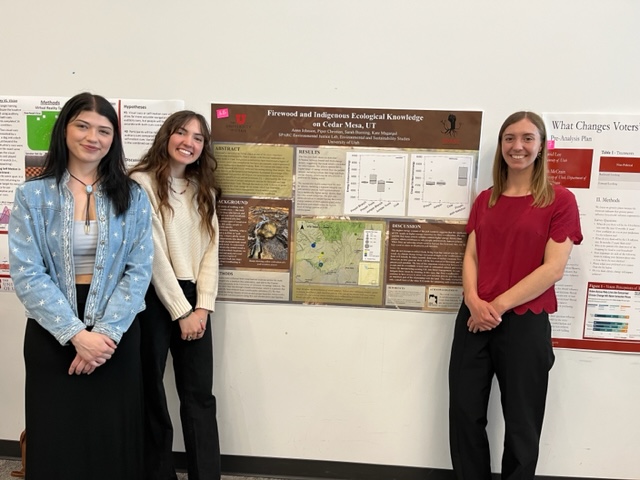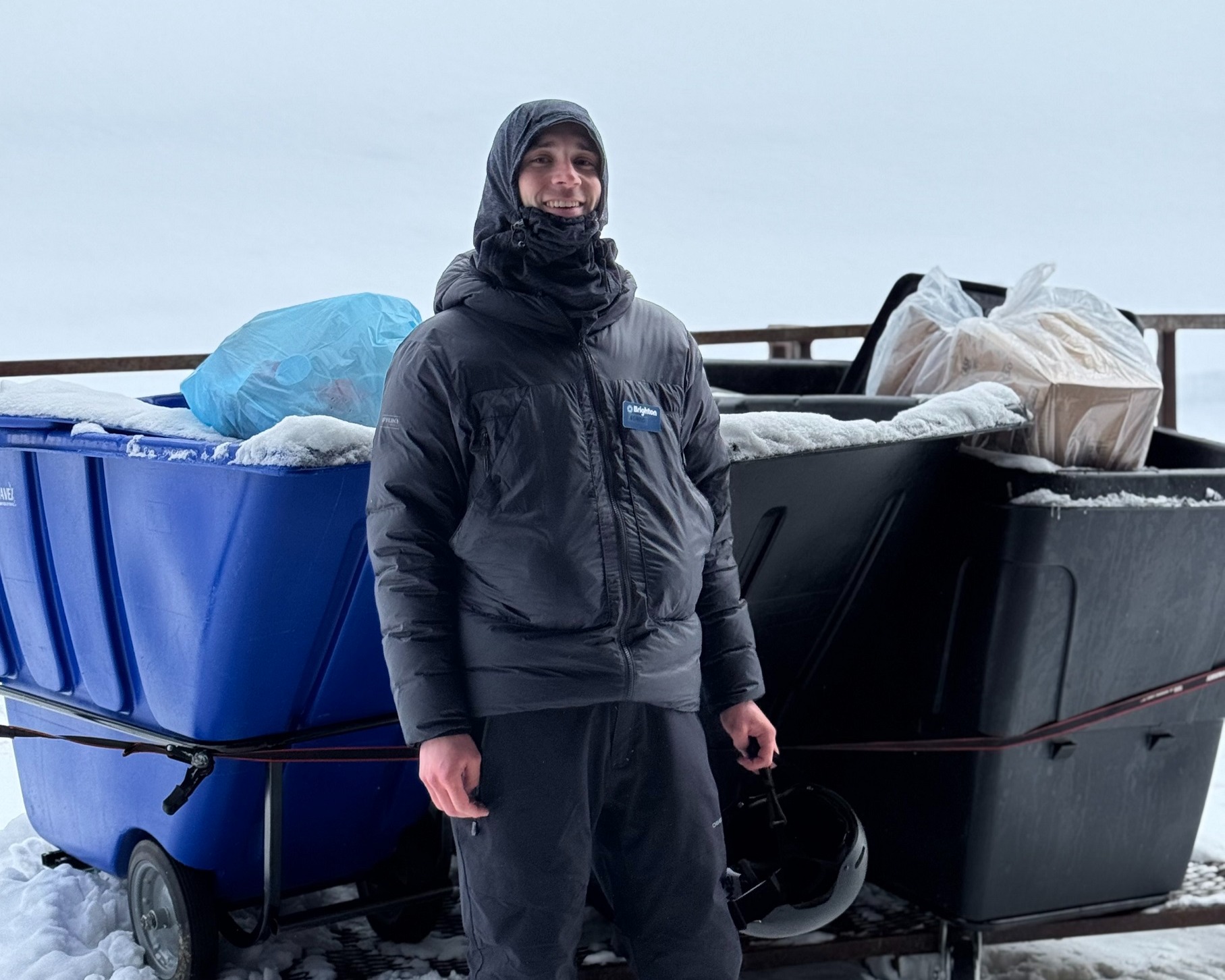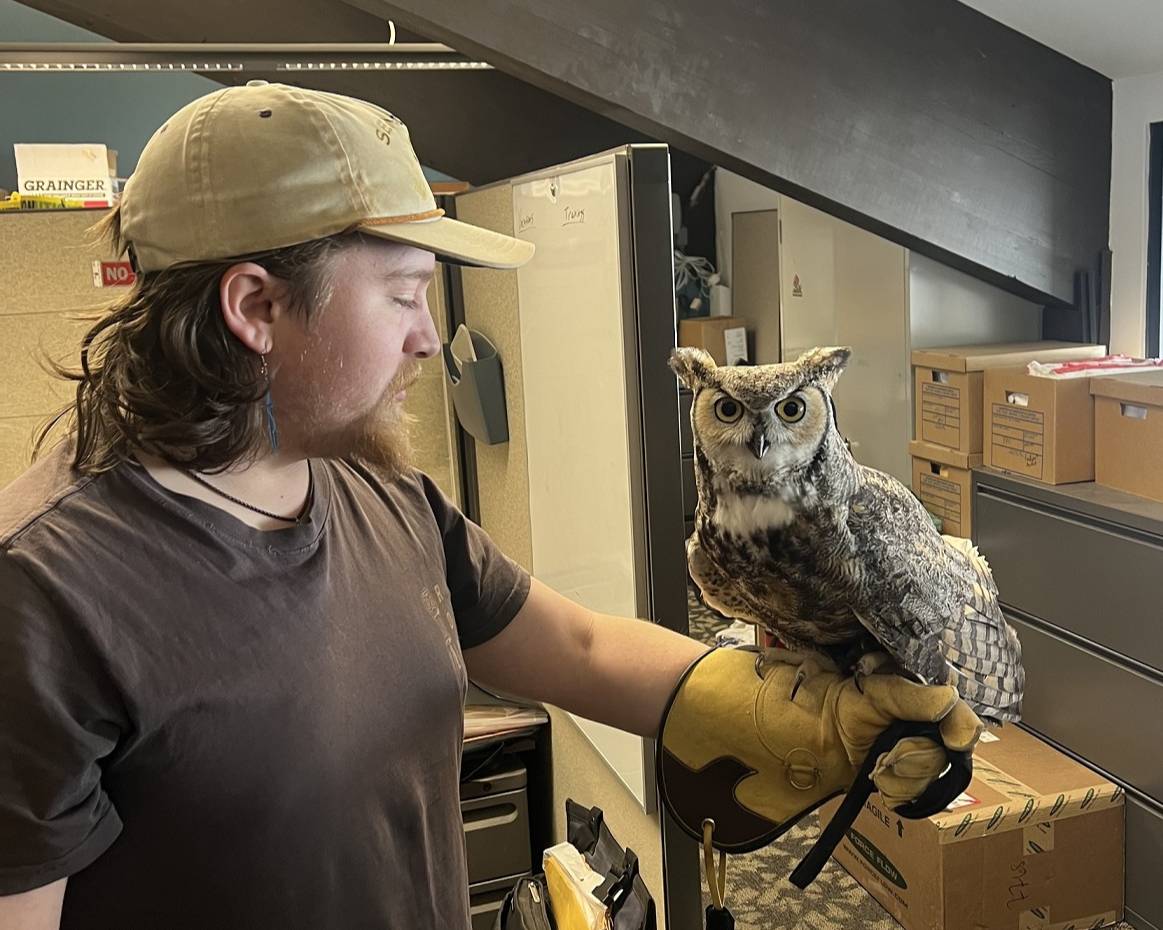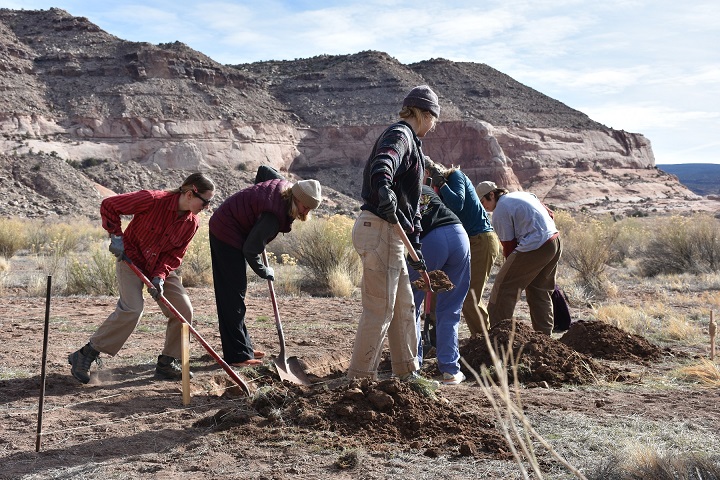ENVST 4800 Internship/ENVST 5000 Research/ENVST 4999 Honors Thesis Requirement
Application Deadline
|
Fall 2025 |
Monday August 11th |
|
Spring 2026 |
Monday December 29th |
|
Summer 2026 |
Monday May 4th |
Prerequisites
Prerequisites include: ENVST 2050, ENVST 2051, ENV 2100 (previously ENVST 2100), ENVST 3364*, and ENVST 3365*.
*one of the 3000 level classes can be taken concurrently with ENVST 4800, 4999, or 5000.
Find your internship/research/honors thesis
The ENVST Program does not place students. It is your responsibility to find and secure an opportunity. Here are some resources to help with your search:
Internships
- Check out the ENVST Internships page for current opportunities.
- A Hinckley Internship can count towards the ENVST internship requirement. They offer local, DC, global, and legislative internship opportunities.
- Use additional resources such as Handshake, LinkedIn, and U Career Success, and more to find an internship.
- The U Career Success can also help you with interview practice, and resume and cover letter review.
- If you've been offered an unpaid internship, you may apply for Step Up funding.
Research
- Ask your professors or advisors about research opportunities.
- Reach out to an ESS Lab.
- Subscribe to the ESS Weekly Newsletter for posted research opportunities.
- Look at the Undergraduate Research Opportunities Program (UROP) and the Wilkes Center for research and funding opportunities. These programs have their own applications and deadlines.
- The Office of Undergraduate Research offers resources like a database of research opportunities and an undergraduate research education series.
Research does not have to be with ESS faculty, but your research mentor must have an environmental focus.
Honors Thesis
- Meet with the Faculty Honors Advisor, Dr. Matt Fry, to discuss your thesis topic and potential thesis faculty advisor. Use the resources listed above in the Research section to find an advisor.
- Explore suggested timelines and ideas for developing your thesis on the Honors College Thesis website.
- Check out examples of previous honors theses.



Criteria for Approval
- Internships/research/honors thesis can be broad but must be focused on an environmental/sustainability issue.
- Your experience should provide you with the opportunity to apply theoretical and empirically based ideas from your coursework to a real-world setting.
- Internships should offer the opportunity to develop marketable, professional skills.
- Internships that primarily consist of physical labor, photocopying, filing, or similar work will not be considered.
Enroll in your class
Once your application is approved you will be emailed an add code to register for the correct course. It is your responsibility to register in a timely manner and to register for the correct number of credits.
Internships: You will be enrolled in an online Canvas course with several required assignments throughout the semester.
Hinckley Internships: You will enrolled in the Hinckley course. Please check with your Hinckley instructor to determine if there is a Canvas course portion.
Research with ENVST Faculty/Honors Thesis: Check with your faculty mentor to determine if there is a Canvas course portion.
Research with non-ENVST faculty: You will be enrolled in an online Canvas course with several required assignments throughout the semester.
Credit Hours:
Three credits total of ENVST 4800, 5000 OR 4999 are required to fulfill the ENVST Major requirement. You can complete up to six credits total.
- 1 credit hour = 45 total hours
- 2 credit hours = 90 total hours
- 3 credit hours = 135 total hours
Have Questions? Contact us:

Questions regarding how to find and prepare for internships/research:
ENVST Lead Advisor
Christina Albers
christina.albers@utah.edu
801.213-1144

Questions regarding the application process and class structure:
Community Engaged Learning Program Coordinator
Sarah Tabak
sarah.tabak@utah.edu
847.648.0609

Questions regarding honors thesis:
ENVST Honors Faculty Advisor
Matt Fry
m.fry@ess.utah.edu
801.581.8218

